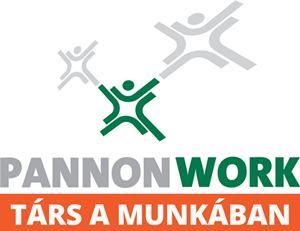
The Federal Transit Administration, citing Metro’s botched response to Thursday’s fire at the Federal Center SW station, on Saturday issued a series of emergency directives to the transit agency and threatened to shut down all or parts of the nation’s second-busiest subway unless it took “urgent action” to ensure passenger safety.
In its toughest measures since it took over direct safety oversight of Metro in October, the FTA ordered daily inspections for “hot spots” and water leaks along tracks, as well as reductions in the number of railcars in service and slower speeds for trains so less power is used. It also demanded a “safety stand-down” so that all Metro staffers can be retrained in proper procedures. The training must be completed by May 16.
The four-page directive lambastes Metro employees for placing a higher priority on keeping trains running than on safety, especially in what the FTA called their “slow and inadequate” response to two smoke and fire events Thursday at Federal Center SW.
In the first incident, the FTA said, a third-rail insulator exploded Thursday morning, significantly damaging the track and spraying “fiery metal and ceramic projectiles” onto the station platform. According to the FTA, the operations supervisor on duty conducted only a “cursory inspection before ordering the damaged track back into service.”
The dramatic explosion was captured on video.
 Metro personnel wheel a shopping cart full of new insulators into the Federal Center SW station. The station was shut down overnight Thursday so the insulators could be replaced following two fires. (Faiz Siddiqui/The Washington Post)
Metro personnel wheel a shopping cart full of new insulators into the Federal Center SW station. The station was shut down overnight Thursday so the insulators could be replaced following two fires. (Faiz Siddiqui/The Washington Post)[Earlier FTA report highlights problems with Metro’s Rail Operations Control Center ]
The FTA specifically faulted controllers in Metro’s often-criticized Rail Operations Control Center (ROCC) for rejecting requests from both maintenance personnel and inspectors to shut down power along the track so it could be inspected after the fire. The controllers cut the power only after a second smoke event in the same station later that day.
In the meantime, the FTA said, passenger trains “continued to operate across this potentially dangerous track without interruption.”
The second incident was caused by debris cluttered around the electrified third rail. The smoke prompted the evacuation of the Federal Center SW station and the suspension of service on portions of three lines.
[Metro will shut down sections of lines for year-long repair work]
The FTA said the directive shows that Metro needs to take more far-reaching actions than those announced Friday, when Metro General Manager Paul J. Wiedefeld unveiled a major, year-long rebuilding plan that will require stretches of some rail lines to be closed for days.
Both the FTA and its parent agency, the Transportation Department, were surprisingly mum Friday when the new rebuilding plan, billed mainly as a safety effort, was unveiled.
On Saturday, an FTA spokesman said the Metro plan “is an important piece of the puzzle, but. . . it does not fully tackle many of the serious safety issues facing the system.”
[Arcing fire prompted shutdown of Metro’s Federal Center SW station]
Metro responded with a one-sentence statement saying Wiedefeld “met with FTA this morning and is committed to implementing the new directives.” A Metro spokesman said Wiedefeld would have no further comment until he had more time to study the FTA directive.
But Metro Board Chairman Jack Evans voiced frustration with the FTA for second-guessing Metro when, in his view, the transit agency’s recently installed leadership was already pushing ahead aggressively on safety.
[NTSB: Year after year, Metro had failed to learn from its mistakes]
“After the fact, everybody tries to pile on: ‘You’ve got to do this, you’ve got to do that,’ ” said Evans, who also is a D.C. Council member.
“We’re doing it anyway. When I talked to Paul [Wiedefeld], he said, ‘We’re doing all these things,’ ” said Evans (D-Ward 2).
Evans became board chair in January, and Wiedefeld took over as general manager in November.
Given Metro’s efforts, Evans said, he thought it was unlikely that the FTA would take the unprecedented step of shutting down service to punish Metro for failing to follow the federal directives. But he said he would support such an extreme step if necessary.
“If they really feel at the end of the day that Metro is not safe — that it’s not doing what’s necessary to make these trains safe — then I would support shutting it down,” Evans said.
The FTA can also punish Metro by withholding funds — up to $33 million in the current fiscal year.
The FTA isn’t the only federal agency pressuring Metro. On Tuesday, the National Transportation Safety Board — during a hearing into the cause of the fatal Jan. 12, 2015, smoke incident in a tunnel near the L’Enfant Plaza station — criticized the agency for failing to learn from its mistakes. The panel also expressed frustration at the number of smoke and fire incidents that had occurred since the calamity that killed one and injured more than 80.
The FTA also expressed dissatisfaction that “serious safety events” continue to occur “with great frequency” since the FTA issued a 91-step corrective action plan for Metro in June.
[FTA safety inspectors catch more track defects that Metro missed]
It noted that since April 23 Metro has had eight smoke and fire events requiring passenger evacuations and suspensions of service.
Passengers seemed most likely to be affected immediately by the FTA’s call for Metro to use fewer railcars on trains, and to run them at reduced speeds, in “known high-risk areas.” That would reduce the amount of power used — and thus cut the risk of electrical problems — but it would also lead to more-crowded trains and slower trips.
Metro declined to clarify Saturday how that would affect service, but Evans said it might mean using six-car trains instead of eight-car trains at times.
The FTA offered a list of four missteps following the initial smoke incident Thursday, when an insulator along the third rail, which powers trains, exploded.
●First, Metro “failed to notify FTA of the event in accordance with established protocol.”
●Second, a Metro operations supervisor at the scene “conducted only a cursory inspection before ordering the damaged track back into service.”
●The Rail Operations Control Center, or ROCC, denied permission to Metro maintenance personnel when they requested permission to take the track out of service and remove power from the third rail so appropriate inspections could be performed.
●Finally, the ROCC “did not give [Metro] investigators clearance to proceed with the inspections until several hours later.”
Metro closed that portion of the Blue, Orange and Silver lines only after the second fire-and-smoke incident occurred at the same station later in the day, the FTA said. That meant trains with passengers traveled over the potentially dangerous track for hours.
The ROCC, located in Landover, Md., is the nerve center for Metrorail and manages train traffic in real time, much like an air traffic control center. ROCC controllers oversee access to the tracks, manage abnormal and emergency events, and are supposed to ensure the safety of trains and personnel.
But the ROCC has repeatedly drawn criticism for events such as its mishandling of ventilation fans during the deadly smoke incident near the L’Enfant Plaza station in January 2015.
The June review by the FTA identified shortcomings in virtually all aspects of the center’s operations, including training, management and documentation.
Evans, the Metro board chair, questioned whether all of the FTA’s criticisms were justified.
He said Wiedefeld told him that neither the operations supervisor at the scene nor ROCC personnel realized at first the seriousness of the initial explosion captured on video on Thursday.
They thought it was a routine “arcing” malfunction, in which a damaged insulator can permit electricity to flow from the third rail to the ground, generating heat and igniting flammable substances in the area. The escape of electricity is called arcing.
“Neither of them saw the video,” Evans said. “They got information that there’s an arcing problem.”
He continued: “As Paul [Wiedefeld] says, arcing problems are ongoing in every [transit] system in the country. You can’t immediately close down your system every time there’s an arcing problem, because you’d be shutting down your system all the time.”
Evans said the ROCC shut off the power “only when they saw the video and realized it was more complicated.”
The “safety stand-down” directed by the FTA essentially consists of a special period of time set aside for safety training for Metro employees from front-line workers to managers. The FTA has not ordered one before, but it ordered similar safety briefings last month
FTA said the stand-down must include an after-action review of the Federal Center SW incidents, and a review of all safety procedures related to smoke and fire prevention, and to track inspections.
“Supervision at all levels of Metrorail operations must ensure that decision-making is made on the basis of safety and not operational convenience,” the FTA said.
Any violation of the directive could lead to FTA withholding up to one-quarter of FTA financial assistance to Metro, and “issuing restrictions, closures or prohibitions on service as necessary and appropriate to address unsafe conditions or practices that present a substantial risk of death or personal injury,” the FTA directive said.
https://www.washingtonpost.com/local/federal-agency-orders-new-safety-steps-after-metros-handling-of-thursday-fire/2016/05/07/2e44b6aa-1467-11e6-8967-7ac733c56f12_story.html




